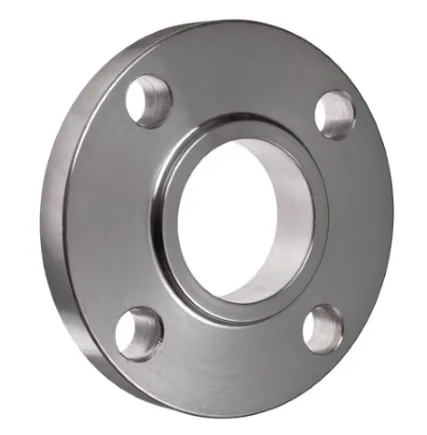-
Cangzhou Yulong Steel Co., Ltd.
-
Phone:
+86 13303177267 -
Email:
admin@ylsteelfittings.com
- English
- Arabic
- Italian
- Spanish
- Portuguese
- German
- kazakh
- Persian
- Greek
- French
- Russian
- Polish
- Thai
- Indonesian
- Vietnamese
- Zulu
- Korean
- Uzbek
- Hindi
- Serbian
- Malay
- Ukrainian
- Gujarati
- Haitian Creole
- hausa
- hawaiian
- Hebrew
- Miao
- Hungarian
- Icelandic
- igbo
- irish
- Japanese
- Javanese
- Kannada
- Khmer
- Rwandese
- Afrikaans
- Albanian
- Amharic
- Armenian
- Azerbaijani
- Basque
- Belarusian
- Bengali
- Bosnian
- Bulgarian
- Catalan
- Cebuano
- China
- China (Taiwan)
- Corsican
- Croatian
- Czech
- Danish
- Esperanto
- Estonian
- Finnish
- Frisian
- Galician
- Georgian
- Kurdish
- Kyrgyz
- Lao
- Latin
- Latvian
- Lithuanian
- Luxembourgish
- Macedonian
- Malgashi
- Malayalam
- Maltese
- Maori
- Marathi
- Mongolian
- Myanmar
- Nepali
- Norwegian
- Norwegian
- Occitan
- Pashto
- Dutch
- Punjabi
- Romanian
- Samoan
- Scottish Gaelic
- Sesotho
- Shona
- Sindhi
- Sinhala
- Slovak
- Slovenian
- Somali
- Sundanese
- Swahili
- Swedish
- Tagalog
- Tajik
- Tamil
- Tatar
- Telugu
- Turkish
- Turkmen
- Urdu
- Uighur
- Welsh
- Bantu
- Yiddish
- Yoruba

Oct . 12, 2024 09:06 Back to list
welded steel pipe
Understanding Welded Steel Pipe Applications and Advantages
Welded steel pipes are an essential component in various industries, characterized by their durability, versatility, and cost-effectiveness. Unlike seamless pipes, which are made from solid round steel billets, welded pipes are produced by welding together flat steel plates or strips. The process involves rolling the steel into the desired shape and then using welding techniques to fuse the edges. This method gives welded pipes several distinct advantages, making them popular in many applications.
One of the primary benefits of welded steel pipes is their strength. The welding process allows for the creation of high-strength joints that can withstand significant pressure and stress. This makes welded pipes suitable for high-pressure applications, such as oil and gas transportation, where durability is crucial. The ability to produce large diameters also makes welded pipes ideal for infrastructure projects, such as water distribution systems and sewage pipelines.
Welded steel pipes are widely used in various sectors, including construction, automotive, and manufacturing. In the construction industry, they serve as structural elements and are often used in scaffolding, frames, and supporting structures. In the automotive sector, welded pipes are used in exhaust systems and as conduits for fluid transport. Furthermore, their versatility allows for different finishes and coatings, enhancing their corrosion resistance and making them suitable for various environmental conditions.
welded steel pipe

Another significant advantage of welded steel pipes is cost-effectiveness
. The manufacturing process is generally less expensive than that of seamless pipes, allowing for reduced production costs. This affordability makes welded pipes a preferred choice for large-scale projects, where budget constraints are a primary concern. Additionally, the production process allows for the fabrication of pipes in shorter lengths, which can be beneficial for certain applications requiring tailored solutions.Welded steel pipes are also easier to handle and transport due to their varied lengths and weights. They can be produced in a range of diameters, from small to large, catering to different specifications and requirements. The uniformity in production means that welded pipes can often be delivered on time, which is crucial for maintaining project schedules.
However, it is essential to recognize that the quality of welded steel pipes is significantly influenced by the welding process and the materials used. Advances in technology, such as automated welding systems and non-destructive testing methods, have improved the overall quality and reliability of welded pipes. Ensuring that these pipes meet industry standards and specifications is vital for their performance and longevity.
In conclusion, welded steel pipes are a fundamental part of modern industrial applications. Their strength, versatility, and cost-effectiveness make them a preferred choice across various sectors. As technologies continue to evolve, the manufacturing processes and applications of welded steel pipes are expected to expand, further enhancing their role in infrastructure development and industrial growth. For engineers, architects, and manufacturers, understanding the benefits and applications of welded steel pipes is crucial for making informed decisions in project planning and execution.
Latest news
-
ANSI 150P SS304 SO FLANGE
NewsFeb.14,2025
-
ASTM A333GR6 STEEL PIPE
NewsJan.20,2025
-
ANSI B16.5 WELDING NECK FLANGE
NewsJan.15,2026
-
ANSI B16.5 SLIP-ON FLANGE
NewsApr.19,2024
-
SABS 1123 FLANGE
NewsJan.15,2025
-
DIN86044 PLATE FLANGE
NewsApr.19,2024
-
DIN2527 BLIND FLANGE
NewsApr.12,2024
-
JIS B2311 Butt-Welding Fittings LR/SR 45°/90° /180°Seamless/Weld
NewsApr.23,2024











